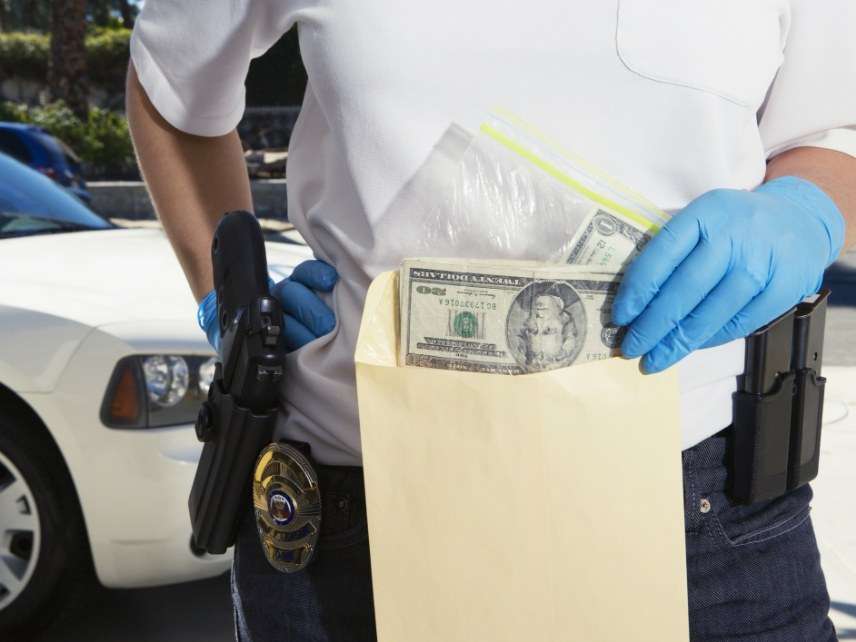The Justice Department Didn't Charge Him With a Crime. It's Going to Take $39,000 from Him Anyway.
It's not a crime to travel with lots of cash. But you still might be treated like a criminal.

In order to get back any of the money that the New Hampshire State Police took from him, Edward Phipps has agreed to let federal prosecutors keep most of it, even though he has not been charged with any crimes.
The cops took the cash during a traffic stop in 2016. Phipps wasn't even in the car at the time.
The police pulled the driver over for tailgating and for going one whole mile per hour over the speed limit. A search turned up a bag full of $46,000 cash in the trunk. Police then brought in a drug-sniffing dog, which came up empty.
Though they have presented no evidence of any criminal act, police took the money and federal prosecutors declared their intent to force the forfeiture of the funds, so they could keep it. Phipps came forward in July 2017 to indicate that the cash was his, and he said it was obtained legally.
We took note of this case back in March, and it looks like the Justice Department succeeded in getting its way. As part of a settlement, Phipps has agreed to give the Department of Justice $39,000 of the $46,000 seized.
This is was a case of civil asset forfeiture, where law enforcement officials take and keep people's assets that they suspect are connected to criminal activity. Often, they can do this without convicting or even charging any person with a crime. Instead the property itself is accused of being linked to misconduct. The "defendant" in this settlement is the cash itself; the Department of Justice is suing a sack of money.
This weird quirk matters because the burdens of proof in civil courts are often lower than the "beyond a reasonable doubt" required to convict a person. So it's easier for prosecutors to win, and it flips presumption of innocence on its head: Phipps has to hire a lawyer and prove his money isn't connected to criminal activity.
As part of the settlement, Phipps not only agrees to give up everything but $7,000 (which will probably have to go to his legal fees). He agrees never to request that the money to be returned, and he furthermore agrees never to attempt to assert any claim that the government did not have "probable cause" to make him forfeit the money. I'm highlighting that part of the story to show how much lower the legal threshold is to take somebody's stuff and keep it. "Probable cause" is the amount of evidence police need for a search warrant, not nearly enough to convict somebody of a crime. (A note here: Both a Justice Department official and a reader contacted me to point out that the legal threshold for federal civil forfeiture is "a preponderance of the evidence," a more restrictive requirement than "probable cause." This is true, but the settlement uses the term "probable cause" to describe the justification for the seizure and forfeiture, not the stricter legal requirement.)
This wasn't supposed to happen. New Hampshire reformed its civil asset forfeiture laws in 2016 to require a criminal conviction before police or prosecutors could force people to forfeit money or property. Unfortunately, the state's reform did not close a loophole that lets local police partner with the feds in a program called Equitable Sharing. In this system, local police use the federal asset forfeiture program instead of their own and then the Justice Department distributes most of the forfeited money back to local law enforcement.
That's why the Department of Justice is involved here. The state police can't seize Phipps' money on their own. So they went to the feds to arrange the forfeiture, and then the Equitable Sharing program lets the Justice Department funnel the funds right back to local law enforcement. It's not money laundering when it's the government.
This blog post has been updated to clarify federal law on civil forfeiture requirements.


Show Comments (71)